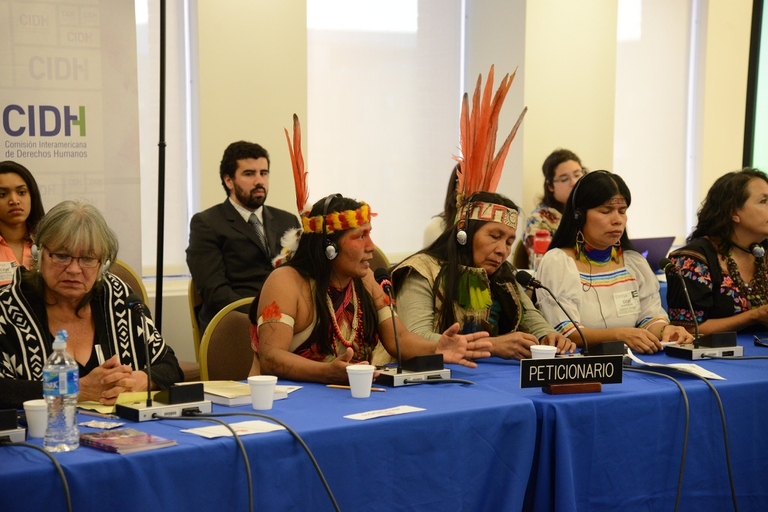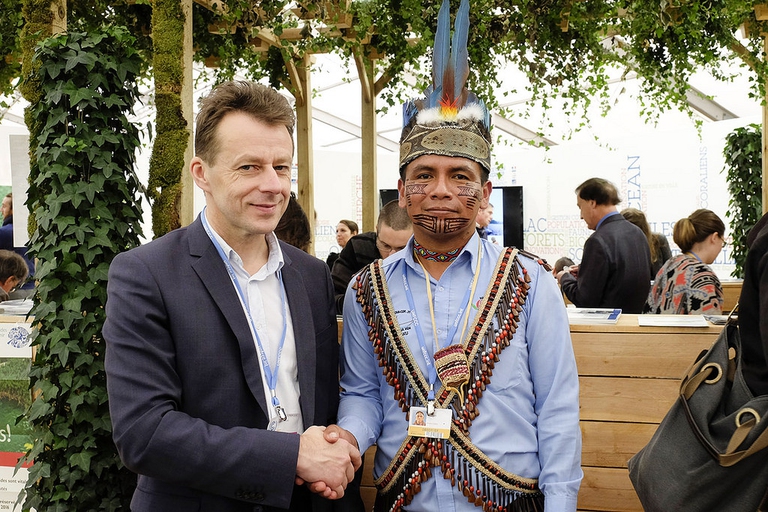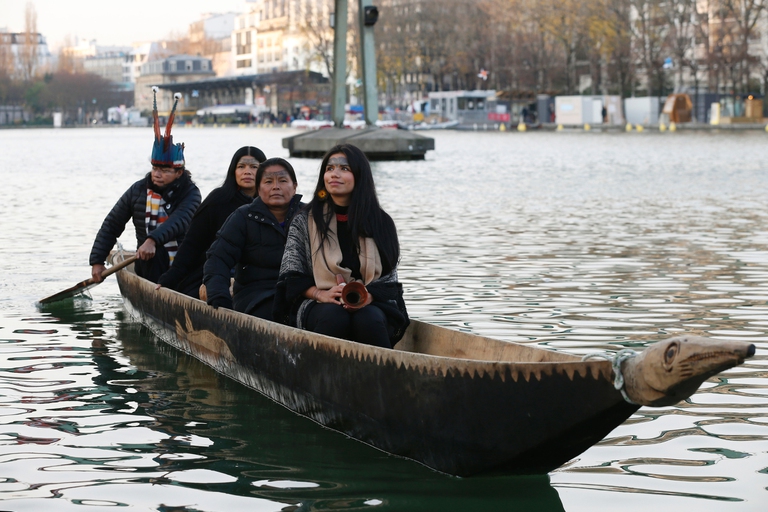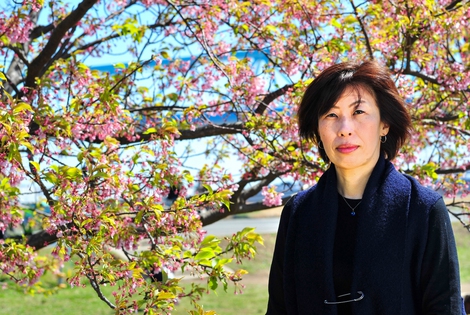
Three people putting the protection of the planet before themselves. Three powerful stories from Latin America, the deadliest region for environmental activists.
It has been four years since the Inter-American Court of Human Rights found Ecuador guilty of granting the ancestral land of the Sarayaku in concession to an oil and gas company. The community of about 1,200 indigenous Kichwa people is situated along the Bobonaza River, in the southern part of the Ecuadorian Amazon. In 2012, the Court reaffirmed the right of
It has been four years since the Inter-American Court of Human Rights found Ecuador guilty of granting the ancestral land of the Sarayaku in concession to an oil and gas company. The community of about 1,200 indigenous Kichwa people is situated along the Bobonaza River, in the southern part of the Ecuadorian Amazon.
In 2012, the Court reaffirmed the right of indigenous groups to be consulted on projects that affect their territories, safeguarding the right to land of all communities that have based their economy, culture and religion on their relationship and synergy with nature. In order to discover what has happened since the Court’s decision was announced, we spoke to Eriberto Gualinga, filmaker, photographer and member of the Kichwa community of Sarayaku.
Has anything changed since the Court’s decision?
Despite the sentence, nothing seems to have changed in Ecuador. Indigenous lands are granted in concession to oil and mining companies and our leaders continue to be persecuted for claiming our rights. Recently, communities from the southern Amazon were forced to abandon their territories in violation of their ancestral right to land.
What is the current situation with regards to the protection of Sarayaku land?
The government doesn’t respect our right to prior consultation and consent on projects related to our territories, even in protected areas as in the case of the Yasuni Park.
Over the years and especially after the Court’s decision, has your relationship with oil and gas companies changed?
We have always maintained distant relationships with such companies. In the specific case of the Sarayaku’s lands, they would like to gradually dismember them by giving new names to blocks of our territory.
The whole world has appreciated the courage of Sarayaku in defending their rights. Have other indigenous communities been inspired by your story?
Because of our experience in peaceful resistance against oil projects we’ve participated in several meetings with other communities. In order to join all efforts, we also created the Kichwa Community of Peoples of the Bobonaza Basin. Together with the Zápara People and Achuar Tribe, Sarayaku have also shared their experience with other Latin American tribes and worldwide communities.
The Sarayaku are proposing a new lifestyle focused on harmony with nature. How would you explain it?
The Sarayaku are promoting a new life approach that we publicly presented at COP21, and we also discussed during the IUCN World Conservation Congress held in Hawaii, as well as in Ecuador. Our proposal is called Kawsak Sacha (living jungle) and it consists of a new concept of managing ancestral lands, where the territories of indigenous tribes are kept free from oil, mining and forestry industries’ exploitation and communities enter into a direct relationship with nature and protective forest beings so that they can effectively ensure their survival and that of future generations. This is a spiritual and physical proposal much deeper and more effective than creating national parks or protected areas.
Siamo anche su WhatsApp. Segui il canale ufficiale LifeGate per restare aggiornata, aggiornato sulle ultime notizie e sulle nostre attività.
![]()
Quest'opera è distribuita con Licenza Creative Commons Attribuzione - Non commerciale - Non opere derivate 4.0 Internazionale.
Three people putting the protection of the planet before themselves. Three powerful stories from Latin America, the deadliest region for environmental activists.
Influential scientist, activist and author Vandana Shiva fights to protect biological and cultural diversity, and against GMOs.
Kimiko Hirata has blocked 13 new coal plants in Japan, but she hasn’t done it alone. The 2021 Goldman Prize winner tells us about her movement.
The Goldman Environmental Prize, the “green Nobel Prize”, is awarded annually to extraordinary activists fighting for the well-being of the planet.
A special report from the Yuqui territory delves deep into the dreams, challenges, joys and sadness of one of Bolivia’s most vulnerable indigenous groups.
The Yuqui people of the Bolivian Amazon fight not only to survive in the face of settlers, logging and Covid-19, but to preserve their culture and identity.
We talk to Shaama Sandooyea, activist and marine biologist from Mauritius onboard Greenpeace’s Arctic Sunrise ship in the heart of the Indian Ocean.
Jair Bolsonaro is accused of crimes against humanity for persecuting indigenous Brazilians and destroying the Amazon. We speak to William Bourdon and Charly Salkazanov, the lawyers bringing the case before the ICC.
Arrested for supporting farmers. The alarming detention of Disha Ravi, a 22-year-old Indian activist at the fore of the Fridays for Future movement.










